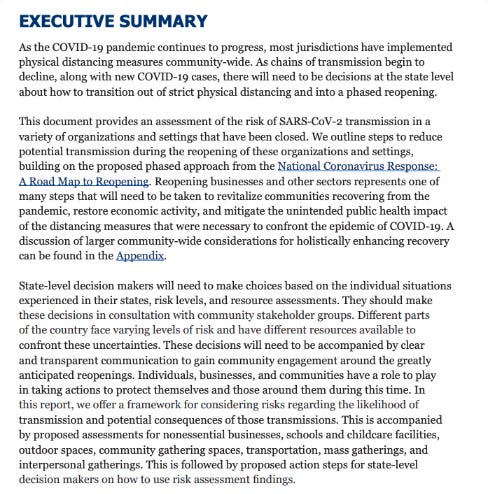Dickie's Digest #17 - Angel Investing, Learning to Read, and Scott Gottlieb
Hi there 👋🏻👋🏻
Happy Sunday! This morning, the Digest hit 100 subscribers! I truly appreciate you taking the time to read this each week.
These 100 subscribers span a tremendous range of ages, backgrounds, schools, and professions. I have some epic ideas for tapping into these perspectives in the coming weeks — stay tuned.

As always, be sure to bookmark this email and come back if you can't get through everything today. If you come across anything during the week that's worth sharing, send it my way by responding directly to this email. Enjoy!
PS — Mother's Day is in two weeks. No excuse for forgetting now!
If you find something worthwhile in here each week and know someone else who might too, give that button a tap and share it with them!
Something I'm Thinking About— Early Stage Angel Investing
This episode of the Knowledge Project — Taking Intelligent Risk — explores the life of Jason Calacanis (@Jason), tech entrepreneur, angel investor, and host of the popular podcast This Week in Startups. In the episode, Jason talks about his most recent blog post — Now Is the Best Time To Be an Angel Investor.
In start-up investing, your results vary depending on when you start investing. At the depths of a recession, valuations are cheap, funding is scarce, and future returns are high. At the height of expansions, valuations are frothy, funding is plentiful, and future returns are low.
Given we are transitioning in real-time from the frothy to the scarce, he lays out a simple framework for making angel investments during these potentially lucrative years:
You want to make 30+ investments so you have a chance at an outlier.
You want to only invest in startups that have products in market and revenue — and there are thousands of them.
You want to make small bets when you start and then go 2-10x on the winners.
You want to make those 30+ investments over a three-year period.
30 investments? Unless you are a well-connected venture investor, you are unlikely to have those kinds of opportunities. So I thought to myself: what services are available for the average person to buy shares of small, private companies with large upside potential?
Turns out, there isn't such a service. But there should be, right? Or, at least, someone should be working on it. After a little digging, I found the company attacking this problem: Carta. This article — $1 Trillion in Equity — How Carta Is Set to Unlock the Private Markets — dives into Carta's goal to create liquidity in private markets.
Liquidity in private markets will fundamentally change the way we think about business. For example, I would love to own equity in Robinhood, Notion, and Substack (this newsletter platform) — products I use every day. But until these companies are public, it's unlikely I'll be able to. By that time, the upside potential will be far less.
The everyday person participating in the upside of these rapidly growing businesses unlocks tremendous wealth potential. On the flip side, the feelings of financial security for start-up employees spurs massive innovation potential. Talented engineers are more likely to work for high-growth companies if they could liquidate some of their equity pre-IPO.
Putting these together, could liquidity in private markets simultaneously improve wealth inequality and lead to more fervent innovation? Let me know what you think.
Must Listens
Dickie's Digest Podcast Playlist
There are some weeks where podcasts could make up the entire Digest. Each week I try to flag the absolute best podcast I recently listened to, but quite often that means leaving out other epic ones as well.
To prevent any good ones from slipping through the cracks, I created this playlist on Spotify that you can follow. Any time I add a new podcast to the playlist, it will show up in your podcast feed. The additions will mostly be recently released podcasts, but occasionally I will drop in a classic.
At a Loss for Words: What's Wrong With How Schools Teach Reading
I asked (demanded) the 100th subscriber (shoutout Alison Kreher!) for something to share with the other 99 readers and she suggested this gem. Why do some students struggle to read, and how does the way in which we teach reading make the problem worse?
“There is a theory about how people read words -- one that's deeply embedded in teaching practices and curriculum materials widely used in elementary school classrooms. Although the idea has been disproved by cognitive scientists, it continues to be included in teacher preparation programs, promoted in professional development sessions, and marketed by publishers.”
Must Reads
Public Health Principles for a Phased Reopening During COVID-19: Guidance for Governors
Former FDA commissioner Scott Gottlieb has been a true thought leader throughout the COVID-19 crisis. This report outlines guidelines for states and governors as they begin their reopening process. It's a bit long (~20ish pages), but you can read the executive summary below.
Assessing the risks of easing social distancing measures and restarting parts of the economy requires a measurement of the likelihood of increased transmission and the consequences of that transmission. Likelihood in this case means the probability that reopening a business, school, or other organization where people congregate will cause significantly increased transmission. Consequence is the impact that increased transmission could have on individuals or communities if a business, school, or other organization reopens or eases social distancing measures.

Best of Twitter

Naval did it. He wrote an entire book in 280 characters.
This little man gets it.
End Note
If you’re enjoying the Digest so far, I’d love it if you shared it with a friend or two by forwarding it or sharing it with the button below!
Be sure to follow me on Twitter or respond directly to this email to get in touch. And should you come across anything interesting this week, send it my way! I love finding new things to read through members of this newsletter.
Have an epic week,
Dickie






